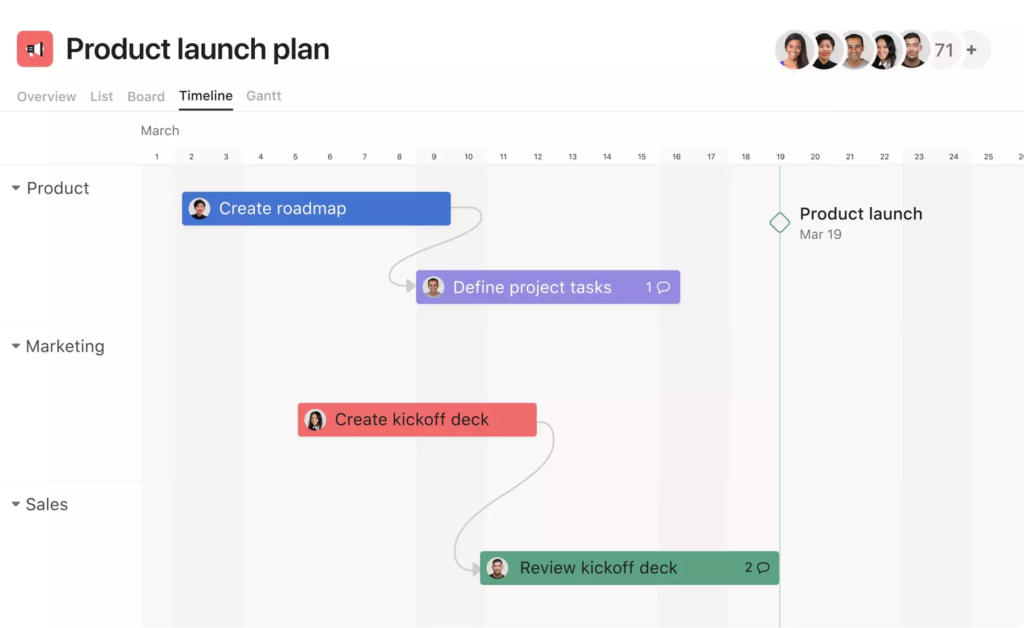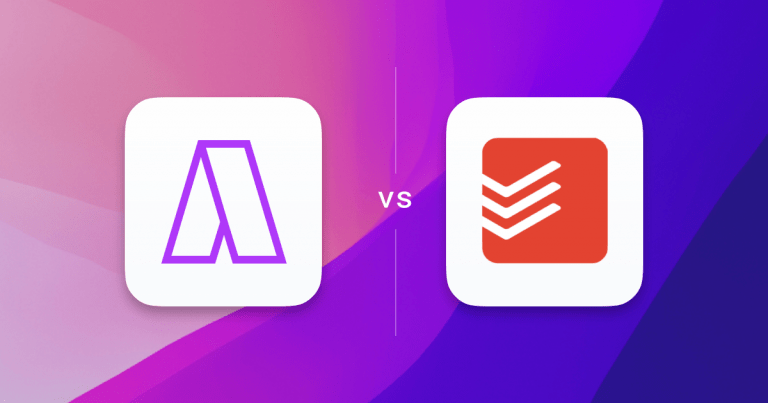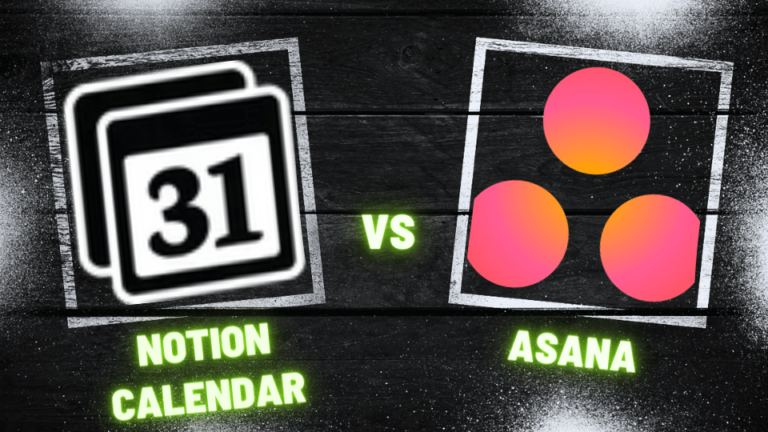What is Notion Calendar
The Notion Calendar, previously known as Cron Calendar, is a calendar application designed for managing meetings and events. It integrates closely with Notion documents, allowing users to connect their Google calendars, schedule meetings, manage events, and collaborate on upcoming events. It supports video conferencing links for platforms like Zoom and Google Meet, offers color coding for time blocking, and has deep integrations with Notion databases.
Key Features of Notion Calendar
- Google Calendar Integration: This feature allows users to seamlessly connect their Google Calendar with Notion, enabling efficient management of events and meetings within a unified interface. It simplifies scheduling and updating events across platforms.
- Meeting Booking Functionality: Notion Calendar offers a user-friendly interface for scheduling meetings. This includes options for setting up recurring meetings, sending invitations, and managing RSVPs, streamlining the meeting planning process.
- Notion Page Connectivity: Users can link calendar events to specific Notion pages, facilitating better organization and access to related notes, tasks, or documents associated with an event. This integration enhances productivity and project management.
- Video Conferencing Integration: The calendar supports adding video conferencing links from popular platforms like Zoom and Google Meet directly into event details. This feature is particularly useful for remote teams and virtual meetings, offering convenience and efficiency.
- Color Coding and Time Blocking: Notion Calendar allows users to color code their events for better visual organization. The time blocking feature helps in allocating specific time slots for tasks, aiding in time management and daily planning.
- Cross-Platform Availability: It is accessible on various platforms including iOS, Windows, Mac, and the web. This cross-platform availability ensures users can manage their calendars and stay organized regardless of the device they are using.
What is Asana
Asana stands out as a versatile project management tool, ideal for various team sizes. Its user-friendly interface, coupled with diverse features like task management, project visualization (including Kanban and Gantt charts), and robust team collaboration tools, makes it a top choice. Additionally, Asana’s integration capabilities with other apps enhance workflow efficiency. Offering a range of pricing plans, including a free version for smaller teams, Asana caters to a broad spectrum of organizational needs. It’s particularly recommended for its ease of use, extensive integrations, and comprehensive project management features.

Key Features of Asana
- Task Management: Asana excels in task management, allowing users to create, assign, and track tasks efficiently. This feature ensures that team members are always aware of their responsibilities and deadlines, promoting productivity and accountability.
- Project Visualization: With options like Kanban boards and Gantt charts, Asana offers versatile visualization tools. These features aid in understanding the project flow and milestones, making it easier to manage timelines and resources.
- Team Collaboration: Asana fosters seamless team collaboration. It allows for easy communication within tasks, sharing of files, and updating progress, thus keeping everyone on the same page and enhancing teamwork.
- Integration Capabilities: The platform integrates with a wide range of other applications and tools, streamlining workflows and automating processes. This integration makes it a flexible tool that can adapt to various business ecosystems.
- Customization and Reporting: Asana offers extensive customization options, including custom fields and reporting features. These allow teams to tailor their project management experience and generate insightful reports for better decision-making.
- User-Friendly Interface: The intuitive interface of Asana is designed for ease of use, making it accessible for teams regardless of their technical expertise. This simplicity ensures a smooth onboarding process and enhances overall user experience.
Notion Calendar vs Asana: Features
| Features | Notion Calendar | Asana |
|---|---|---|
| Integrations | Notion, Zoom, Google Calendar | Google Drive, Slack, Zoho Cliq, Zapier, Jira, Zoom, Toggl Track, Loom, Harvest, Gmail |
| Calendar | Yes | Yes |
| Platforms | macOS, iOS, Android, Web, Windows | macOS, iOS, Android, Web, and Windows |
| Task Management | No | Task creation and assignment, due date setting, progress tracking, project organization, tagging, comments, file attachments, task conversations |
| Natural Language Processing | No | Yes |
| Time Blocking | Yes | No |
| Analytics | No | Yes |
| Meeting Scheduler | Yes | No |
| Time Zones | Yes | Yes |
| Reminders | Yes | Yes |
| Customer Support | Average | Average |
| 1:1 User Onboarding | Yes | Asana offers customer success services including tailored training and consultation, which might include onboarding calls for new users, especially in enterprise plans |
| Pricing | Free | Asana offers three plans: the free Personal plan for basic needs, the Starter plan at $11.59 for expanded features like timeline view, and the Advanced plan at $25.69 for comprehensive project management tools including time tracking and advanced customization. |
Notion Calendar vs Asana: Pricing
Notion Calendar Pricing
Notion Calendar is free to use for Notion users
Asana Pricing
Asana offers three main pricing tiers:
(i) Personal: This is a free plan, suitable for small teams or individuals. It includes basic project and task management features and supports collaboration with up to 10 team members. Users have access to unlimited tasks, projects, messages, and file storage.
(ii) Starter: Priced at $11.59 per user per month, this plan builds on the Personal plan. It allows collaboration with up to 500 teammates and introduces additional features like timeline and Gantt chart views, along with the ability to use forms and automation.
(iii) Advanced: At $25.69 per user per month, the Advanced plan includes all features from the lower tiers and adds functionalities such as goals, time tracking, proofing, approvals, and more advanced customization options.
Each tier offers a range of features to accommodate different needs, from individual use to more complex team collaboration and project management requirements.
Notion Calendar vs Asana: Reviews
Notion Calendar Review
The Notion Calendar, previously known as Cron Calendar, is appreciated for its seamless integration with Google Calendar and its ability to manage events alongside Notion project timelines. It’s praised for its intuitive scheduling features, support for different time zones, and a modern, clean design. However, some users might find limitations in advanced features like detailed task analytics or the lack of more diverse integrations beyond Google services. It’s suitable for both personal and professional use but might require additional tools for more complex task management needs.
Asana Review
Asana, a popular project management tool, is praised for its intuitive interface and robust feature set, making it an excellent choice for teams of all sizes. Key strengths include versatile project views, effective task and assignment management, and smooth team collaboration. Users benefit from a variety of project views like Kanban Board, Timeline, and Gantt, alongside templates for quick project setup. Asana’s progress tracking and integration with various tools like Google Suite and Microsoft 365 further enhance its utility. However, the tool’s complexity might be overwhelming for beginners, and the cost of the Advanced package may be a concern for smaller teams or individual users.
Which One Should You Pick
Consider Notion Calendar if
- You Value Google Calendar Integration: If syncing with Google Calendar is central to your workflow, Notion Calendar’s integration can streamline your scheduling process, although it may lack variety in other third-party integrations.
- You Utilize Notion for Project Management: The calendar is beneficial for those already using Notion for project management, but it might not offer the depth required for more complex task management outside the Notion ecosystem.
- You Prefer a Clean, Minimalist Design: Its straightforward and clean design is ideal for users seeking simplicity, but it may not satisfy those needing more intricate or customizable scheduling features.
Consider Asana if
- You’re Managing Diverse Projects: Asana is suitable for various project types, offering flexibility with multiple view options like Kanban and Gantt charts. However, it might take time to master all the features.
- You Value Integration: Asana’s integration with many tools (like Google Suite, Microsoft 365) enhances its utility. But, be mindful that depending on external apps could complicate workflows.
- You Prioritize Team Collaboration: Asana is strong in team collaboration features, making it easy to track responsibilities and updates. Still, for very small teams or individual use, the platform might offer more than needed.
Best Notion Calendar and Asana Alternatives
- Akiflow: Akiflow is a time management app offering time blocking, task scheduling, and integrations with various tools. It focuses on productivity and organization through a unified task and appointment interface.
Akiflow Price: $19 per month, paid annually - Motion: Motion uses AI to automatically plan your day, considering tasks, meetings, and personal time. Motion offers features like smart rescheduling and priority-based task management, aimed at enhancing efficiency and reducing stress.
Motion Price: $19 per month, annually - Sunsama: Sunsama is a daily planner that helps professionals stay focused & productive by combining tasks, calendars, & emails. It offers features like guided planning, timeboxing, & automatic syncing.
Sunsama Price: $16 per month, annually.

Best Time Blocking Web and Desktop Apps, 2024
Explore the best time blocking apps of 2024! Discover how Akiflow, TickTick, Usemotion, Sunsama, Sortedapp, and TimeHero revolutionize productivity, offering unique features for professionals and students to manage tasks and enhance efficiency.

Improve Focus: 5 ADHD Productivity Tools & Calendar Apps for 2023
Discover five of the best apps and tools for those with ADHD, from note-taking apps to time-blocking platforms. Get ready to stay organised, motivated and on track with Akiflow’s essential guide.

The Top 3 Todoist Alternatives (In-Depth Review)
Over 25 million people now use Todoist to stay on track and plan their day. It has expanded rapidly and is now a widely used task manager with seamless integrations into other task and calendar managers like Akiflow. While Todoist is hugely popular among its wide user base, there are now a variety of Todoist […]

